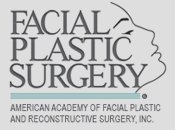Posted August 02, 2011 in Blog, Rhinoplasty, Uncategorized
A VISITOR to Picasso’s studio found the artist gazing disconsolately at a painting on the easel. “It’s a masterpiece,” said the visitor, hoping to cheer him up.
“No, the nose is all wrong,” Picasso said. “It throws the whole picture out of perspective.”
“Then why not alter the nose?”
“Impossible,” replied Picasso. “I can’t find it.”
While driving on summer vacation, my daughter (from the back seat, between texting and FaceBooking) blurted out, “1 in 3 Nose Job Patients Has a Mental Illness!” Our daughter receives a daily email from her teacher that includes a vocabulary word a day. This day’s word was “Prevalent”, as in “Body Dysmorphic Syndrome is prevalent in rhinoplasty patients.” Her full email and article follows:
“WEDNESDAY, July 27 (HealthDay News) — A new study suggests that about one-third of people who want rhinoplasty, also known as a nose job, also have symptoms of body dysmorphic disorder (BDD) — a mental condition in which excessive concern about imagined or minor defects in appearance interferes with daily life. Based on their findings, researchers in Belgium are suggesting that plastic surgeons should be aware of the prevalence of the disorder among their patients. “This study shows that the prevalence of BDD symptoms in a cosmetic rhinoplasty population is high and that the severity of symptoms has a clearly negative effect on daily functioning,” wrote a team led by Dr. Valerie A. Picavet of University Hospitals Leuven. For the study, published in the August issue of Plastic and Reconstructive Surgery, researchers surveyed 266 patients seeking a nose job over the course of 16 months. The investigators found that 33 percent of those questioned had moderate to severe symptoms of BDD. Prevalent: widespread; predominant”
Stay tuned for the prevalence rate of mental illness among parents driving their teenagers around during summer vacation. Anecdotally I find it to be much higher than 1 in 3! Be well.




